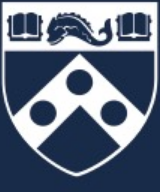Presenter: Dr. Hassan Farhang Ansari, Princeton University
Location: Fisher-Bennet Hall 244, 3340 Walnut Street, Philadelphia
Dr. Hassan Farhang Ansari is the Elizabeth and J. Richardson Dilworth Fellow at the Institute for Advanced Studies at Princeton University. Dr. Ansari earned his doctorate at the École Pratique des Hautes Études (EPHE) of the Sorbonne, Paris. He also studied at the Ḥawza ʿIlmiyya, Tehran and Qum, where his work focused on the study of philosophy, theology, canon law, and legal theory. He is currently a Member at the Institute for Advanced Study in Princeton. His publications include Accusations of Unbelief in Islam: A Diachronic Perspective on Takfīr, eds. Camilla Adang, Hassan Ansari, Maribel Fierro, and Sabine Schmidtke, Islamic History and Civilization series (Leiden: Brill [in press]; L’imamat et l’Occultation selon l’imamisme: Étude bibliographique et histoire des textes (Leiden: Brill, forthcoming); and a critical edition of Ibn al-Malāḥimī’s Tuḥfat al-mutakallimīn fī l-radd ʿalā l-falāsifa (Tehran 2008, with Wilferd Madelung).
Dr. Ansari’s talk focuses on Sunnīsm in Rayy during the Saljuq period. A work in point during this period is Kitāb al-Naqḍ by ʿAbdu-l Jalīl al-Qazwīnī al-Rāzī.During the Seljuq period Rayy was a Ḥanafī /Muʿtazilī, Shīʿī, and Shāfiʿī/Ashʿarī city. The intellectual life of the Sunni scholars of Rayy in the Saljūqid period, be they of Ḥanafī or Shāfiʿī Schools, is interconnected with their coreligionists’ situation in other parts of Iran – especially Nayshābūr and Iṣfahān – which is, as a whole, a reflection of the vacillatory, and occasionally paradoxical, policies of Saljūq kings and viziers vis-à-vis these two Schools. There are very rare independent and documentary evidence of the intellectual tradition in Rayy. According to Dr. Ansari, we are thus left with a handful of sources for the activities of the Sunni scholars of Rayy at this time and their relationships with each other and also with the Zaydīs and the Imāmīs.

